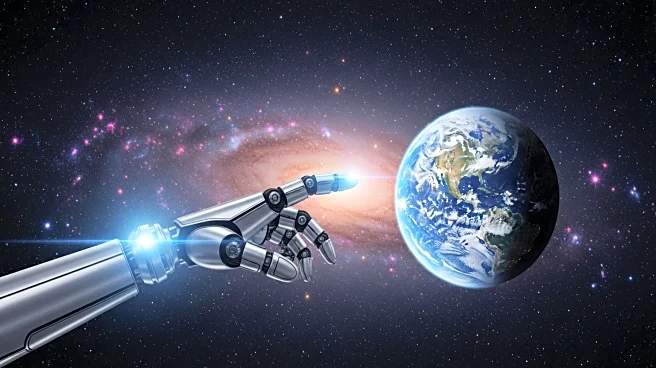What is the story about?
What's Happening?
Icarus Robotics, a New York-based startup, has successfully raised $6.1 million in seed funding to develop robotic solutions aimed at supplementing labor in space. The funding round was led by Soma Capital and Xtal, with participation from Nebular and Massive Tech Ventures. The company plans to deploy AI-controlled worker drones on future commercial space stations, addressing logistical challenges and labor shortages in space environments. Icarus Robotics is collaborating with Voyager Technologies Inc., which has a commercial airlock on the International Space Station (ISS), to bring its robots into space by early 2027. The startup aims to automate tasks that astronauts currently perform, such as unpacking cargo, which consumes significant time and resources.
Why It's Important?
The development of robotic labor solutions in space is crucial as the industry moves towards more commercial operations beyond Earth. Automating routine tasks can significantly reduce costs and increase efficiency, allowing astronauts to focus on scientific research and other critical activities. This shift could lead to a more sustainable model for space exploration and habitation, where human labor is supplemented by advanced robotics. The investment in Icarus Robotics highlights the growing interest in space technology and the potential for AI-driven solutions to transform operations in microgravity environments.
What's Next?
Icarus Robotics plans to conduct its first zero-gravity test flight in the coming year, as part of its preparation for the 2027 launch. The company will initially teleoperate its robots to collect data, with the goal of developing fully autonomous models. This approach will help bridge the gap between simulation and real-world application, ensuring the robots are well-equipped to handle tasks in space. As the launch date approaches, further testing and development will be necessary to ensure the success of the deployment.
Beyond the Headlines
The introduction of robotic labor in space raises ethical and operational questions about the role of humans in future space missions. While automation can enhance efficiency, it also necessitates careful consideration of the balance between human and machine roles in space exploration. Additionally, the reliance on AI and robotics in space could drive advancements in technology that have broader applications on Earth, potentially influencing industries such as logistics and manufacturing.















